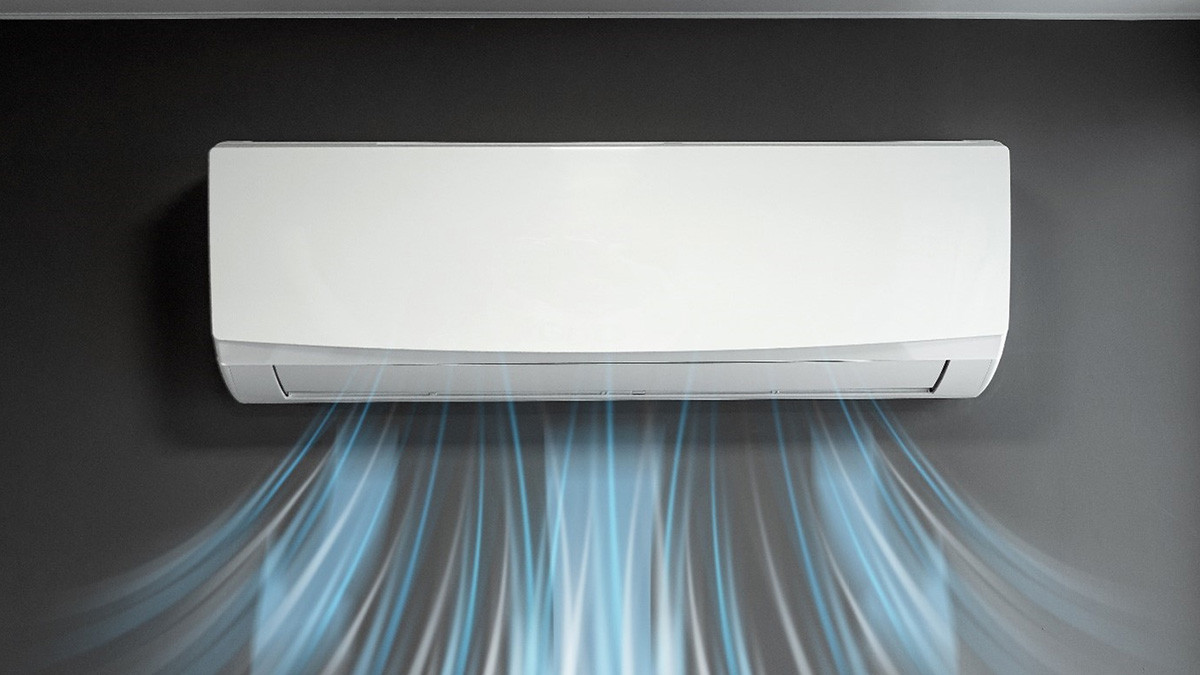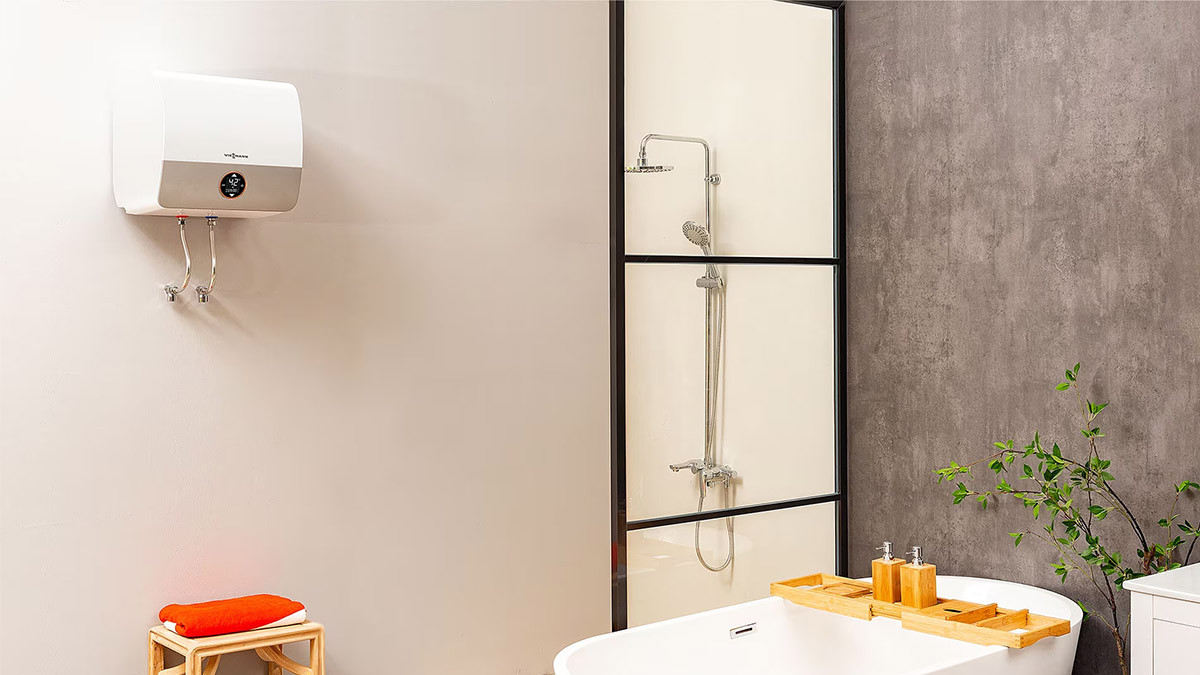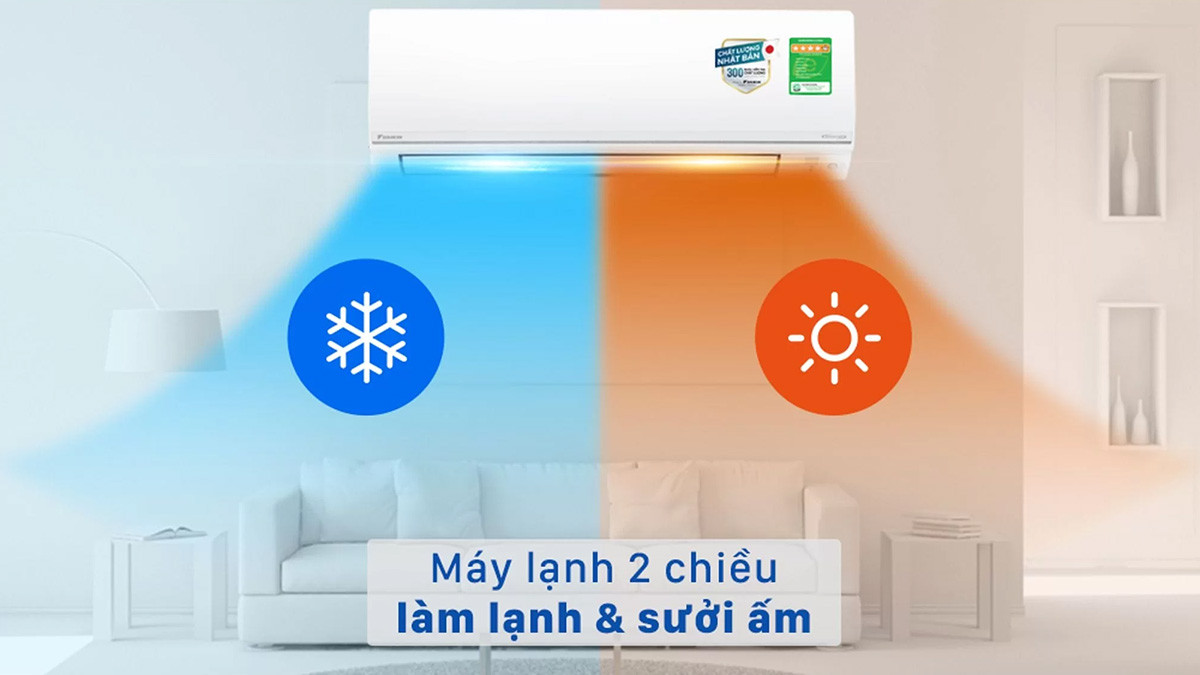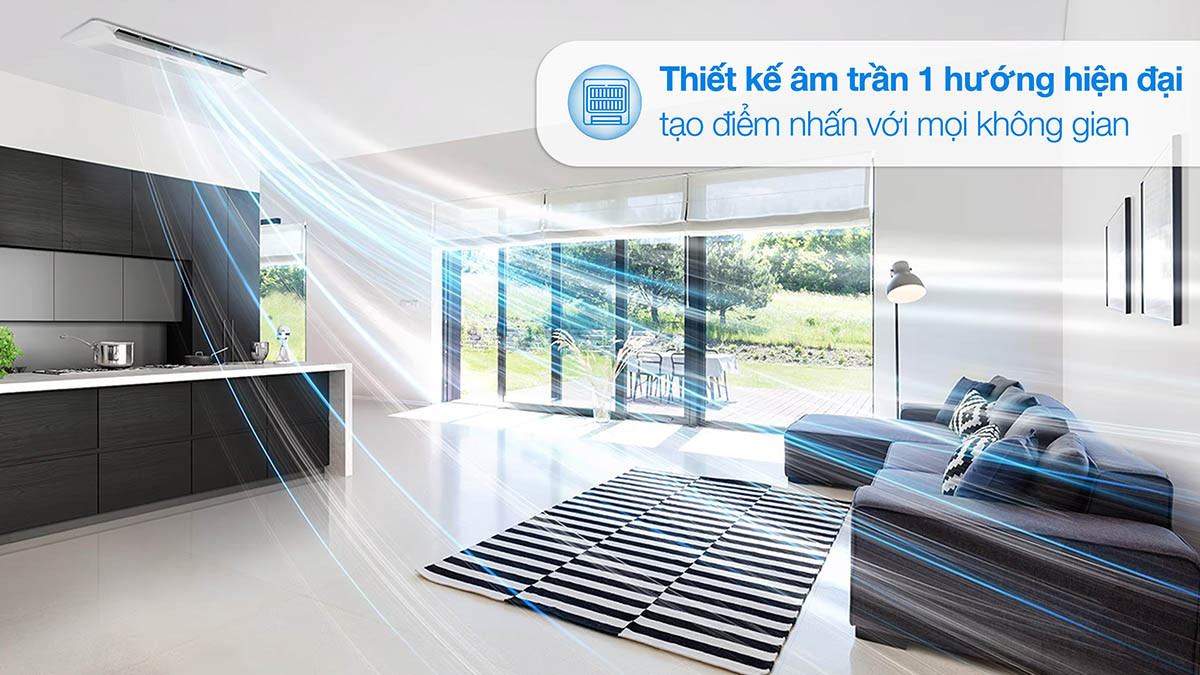Navigating the world of culinary arts often requires understanding terms in different languages. At balocco.net, we believe knowing your way around kitchen equipment terminology, including “air conditioner” in English, is key to a comfortable cooking environment. Let’s explore the English terms for various types of air conditioning and cooling systems.
1. What Is “Air Conditioner” In English?
The direct translation of “máy lạnh” into English is air conditioner. This term refers to a machine used to regulate the temperature and humidity in an enclosed space. According to the U.S. Department of Energy, efficient air conditioning can significantly reduce energy consumption. An air conditioner helps cool and create comfortable conditions for users in rooms, offices, or homes.
Here are some examples of how to use the term air conditioner in English:
- “Mr. Kapoor didn’t provide me with an air conditioner.”
- “No air conditioning?”
- “Use heating and cooling equipment conservatively.”
2. What Is “Hot And Cold Water Dispenser” In English?
A “máy nước nóng lạnh” is referred to as a hot and cold water dispenser in English. This is a household appliance capable of using a single water source to provide both hot and cold water to meet user needs. Typically, each dispenser has two separate hot and cold water taps.
Here are some examples of how to use the term hot and cold water dispenser in English:
- “I purchased a hot and cold water dispenser for our office so that employees can get either cold or hot water as they prefer.”
- “My hot and cold water dispenser is broken, so I need to call a repairman to fix it.”
- “In my restaurant, we always provide hot and cold water to customers using a hot and cold water dispenser.”
3. What Is “One-Way Air Conditioner” In English?
A “máy lạnh 1 chiều” is known as a one-way air conditioner in English. A one-way air conditioner (or simply an air conditioner) has the function of blowing cool air to ensure the circulation of cool air in the house.
Here are some examples of how to use the term one-way air conditioner in English:
- “I prefer using a one-way air conditioner in my bedroom.”
- “The office conference room is equipped with a one-way air conditioner.”
- “Having a reliable one-way air conditioner in the living room is essential during summer.”
4. What Is “Two-Way Air Conditioner” In English?
A “máy lạnh 2 chiều” is called a two-way air conditioner in English. Unlike a one-way air conditioner, which only blows cool air, a two-way air conditioner integrates a reversing mechanism for heating in the winter in addition to its cooling function. This makes the two-way air conditioner a popular product from famous brands such as Daikin, Casper, Panasonic, LG, Mitsubishi Heavy Industries, Gree, Nagakawa, Midea, Sakura, Funiki, and many others.
According to a study by the Air Conditioning, Heating, and Refrigeration Institute (AHRI), two-way air conditioners are increasingly popular due to their versatility.
Here are some examples of using the term two-way air conditioner in English:
- “When purchasing a two-way air conditioner, check if it has the reverse mode for heating.”
- “Our meeting room is equipped with a two-way air conditioner to ensure comfort during important meetings.”
- “I purchased a two-way air conditioner for my living room to regulate the room temperature during both summer and winter.”
5. What Is “Outdoor Unit” Of Air Conditioner In English?
The “cục nóng máy lạnh” is called the outdoor unit in English. This is an essential part of the air conditioner, located outside the environment. In the case of a two-way air conditioner (heat-pump), “condensing unit” is also another term for this hot unit. The function of the outdoor unit is to collect heat from inside the room and discharge it to the outside environment. From the outdoor unit, small pipes lead gas into the room to the cooling unit.
Here are examples of the term outdoor unit:
- “The outdoor unit of the air conditioner is responsible for cooling the refrigerant.”
- “Make sure to clean the outdoor unit regularly to maintain its efficiency.”
- “The technician inspected the outdoor unit for any signs of damage.”
6. What Is “Ceiling-Mounted Air Conditioner” In English?
“Máy lạnh âm trần” is referred to as a ceiling-mounted air conditioner in English. This type of air conditioner is installed in the ceiling or wall, often hidden to not take up usable space. Ceiling-mounted air conditioners usually have a compact design and are suitable for office spaces, hotels, restaurants, or other public areas.
Here are some examples of how to use the term ceiling-mounted air conditioner in English:
- “The ceiling-mounted air conditioner provides efficient cooling for large open spaces.”
- “The conference room is equipped with a powerful ceiling-mounted air conditioner.”
- “During hot summers, the ceiling-mounted air conditioner provides relief in large halls.”
7. What Is “Wall-Mounted Air Conditioner” In English?
In English, “máy lạnh treo tường” is called a wall-mounted air conditioner. It is a ductless air conditioning unit, which is an accessible approach to adding cooling or heating functions to specific rooms and small spaces. Wall-mounted air conditioners are usually permanently installed on the wall, such as in the living room or bedroom, and are designed to cool a specific area.
Here are some examples to help you understand how to use the term Wall-mounted air conditioner in English in sentences:
- “We’re thinking of installing a wall-mounted air conditioner.”
- “We’re considering getting a wall-mounted AC unit.”
- “We installed a wall-mounted air conditioner for efficient cooling.”
8. Understanding The Technical Specifications Of Air Conditioners
When choosing the right air conditioner, it’s crucial to understand its technical specifications. Here are some essential terms:
| Specification | Description | Importance |
|---|---|---|
| BTU (British Thermal Unit) | A measure of the cooling capacity of an air conditioner. Higher BTU values indicate more powerful cooling. | Crucial for matching the air conditioner’s power to the room size. Too low, and it won’t cool effectively; too high, and it wastes energy. |
| SEER (Seasonal Energy Efficiency Ratio) | A measure of the air conditioner’s energy efficiency over a typical cooling season. Higher SEER values mean better energy efficiency. | Helps in estimating long-term energy costs. Look for ENERGY STAR certified models for optimal efficiency. |
| HSPF (Heating Seasonal Performance Factor) | Measures the heating efficiency of heat pumps. Higher HSPF ratings indicate better heating efficiency. | Important if you’re using a heat pump for heating in colder months. |
| EER (Energy Efficiency Ratio) | A measure of the instantaneous energy efficiency of an air conditioner at a specific operating point. | Useful for comparing the efficiency of different models under similar conditions. |
| Airflow (CFM – Cubic Feet per Minute) | Measures the volume of air that the air conditioner can circulate per minute. | Affects how quickly and evenly the air conditioner can cool a room. |




9. How To Choose The Right Air Conditioner For Your Needs
Choosing the right air conditioner depends on various factors, including the size of the room, climate, and energy efficiency preferences. Here’s a step-by-step guide to help you make the best decision:
-
Measure the Room: Calculate the square footage of the room you need to cool. This will help determine the appropriate BTU rating for the air conditioner.
-
Consider the Climate: If you live in a hot climate, you’ll need a more powerful air conditioner with a higher BTU rating. For milder climates, a smaller unit may suffice.
-
Check the SEER Rating: Look for air conditioners with high SEER ratings to save on energy costs. ENERGY STAR certified models are a good choice.
-
Choose the Type: Decide whether you need a window unit, portable unit, or central air system based on your needs and budget.
-
Read Reviews: Check online reviews and ratings to get insights from other users about the performance and reliability of different models.
10. Benefits Of Using Energy-Efficient Air Conditioners
Energy-efficient air conditioners offer numerous benefits, including reduced energy costs, lower carbon footprint, and improved comfort. According to the Environmental Protection Agency (EPA), ENERGY STAR certified air conditioners can save up to 15% on energy bills.
Here’s a detailed look at the benefits:
| Benefit | Description | Impact |
|---|---|---|
| Lower Energy Costs | Energy-efficient models use less electricity to provide the same amount of cooling, resulting in lower monthly energy bills. | Significant savings over the lifespan of the unit. |
| Reduced Carbon Footprint | By using less energy, these air conditioners contribute to lower greenhouse gas emissions, helping to combat climate change. | Positive impact on the environment. |
| Improved Comfort | Many energy-efficient models come with features like programmable thermostats and smart controls, allowing for precise temperature management and comfort. | Consistent and comfortable indoor environment. |
| Rebates and Incentives | Many utility companies offer rebates and incentives for purchasing energy-efficient appliances, further reducing the upfront cost. | Additional cost savings. |
| Extended Lifespan | High-quality, energy-efficient air conditioners are often built with durable components, leading to a longer lifespan compared to less efficient models. | Reduced need for frequent replacements. |
11. Latest Trends In Air Conditioning Technology
The air conditioning industry is continuously evolving with new technologies aimed at improving efficiency, performance, and user experience. Here are some of the latest trends:
| Trend | Description | Benefits |
|---|---|---|
| Smart Air Conditioners | These units can be controlled remotely via smartphone apps and integrate with smart home systems like Amazon Alexa and Google Assistant. | Convenient control and automation, energy savings. |
| Inverter Technology | Inverter air conditioners adjust the compressor speed to match the cooling demand, resulting in more consistent temperatures and energy savings. | Improved energy efficiency, quieter operation. |
| Eco-Friendly Refrigerants | Newer models are using refrigerants with lower global warming potential (GWP) to reduce environmental impact. | Reduced environmental impact. |
| Zoned Cooling | Allows you to cool specific areas of your home, rather than cooling the entire house, leading to significant energy savings. | Targeted cooling, energy savings. |
| Air Purifying Features | Some air conditioners come with built-in air purifiers that remove dust, allergens, and other pollutants from the air. | Improved indoor air quality. |
12. Tips For Maintaining Your Air Conditioner
Regular maintenance is essential to ensure your air conditioner operates efficiently and lasts longer. Here are some practical tips:
| Tip | Description | Frequency |
|---|---|---|
| Clean or Replace Filters | Dirty filters restrict airflow, making the air conditioner work harder and reducing its efficiency. | Every 1-3 months |
| Clean the Coils | Dust and debris can accumulate on the coils, reducing their ability to transfer heat. Use a coil cleaner or a soft brush to clean them. | At least annually |
| Check the Fins | Straighten bent fins on the outdoor unit to ensure proper airflow. | Annually |
| Clear Debris | Remove leaves, grass, and other debris from around the outdoor unit to ensure proper ventilation. | Regularly |
| Schedule Professional Maintenance | Have a qualified technician inspect and service your air conditioner annually to identify and fix any potential issues. | Annually |
| Use a Programmable Thermostat | Set your thermostat to adjust the temperature automatically when you’re away or asleep to save energy. | Daily |
13. Common Problems And Solutions For Air Conditioners
Even with regular maintenance, air conditioners can sometimes experience problems. Here are some common issues and how to address them:
| Problem | Possible Cause | Solution |
|---|---|---|
| Air Conditioner Not Cooling | Dirty filters, low refrigerant, or a malfunctioning compressor. | Clean or replace filters, check for refrigerant leaks, and consult a technician to repair or replace the compressor. |
| Air Conditioner Running Constantly | Incorrect thermostat settings, dirty coils, or an oversized unit. | Adjust thermostat settings, clean the coils, and consider replacing the unit with the correct size for your room. |
| Water Leaking | Clogged drain line or a damaged condensate pump. | Clear the drain line and repair or replace the condensate pump. |
| Strange Noises | Loose parts, a failing fan motor, or a damaged compressor. | Tighten loose parts, lubricate the fan motor, and consult a technician to repair or replace the compressor. |
| High Energy Bills | Dirty filters, inefficient unit, or improper use. | Clean or replace filters, consider upgrading to a more efficient model, and adjust thermostat settings to save energy. |
14. The Impact Of Air Conditioning On Indoor Air Quality
While air conditioning provides comfort, it can also impact indoor air quality. Here’s how to ensure your air conditioner contributes to a healthy indoor environment:
| Factor | Description | Recommendation |
|---|---|---|
| Air Filtration | Air conditioners can filter out dust, pollen, and other allergens, improving air quality. | Use air conditioners with high-efficiency particulate air (HEPA) filters for superior air purification. |
| Humidity Control | Air conditioners help regulate humidity levels, preventing the growth of mold and mildew. | Maintain humidity levels between 30% and 50% to prevent mold growth. |
| Ventilation | Ensure adequate ventilation to bring fresh air into your home. | Open windows and doors periodically to allow fresh air to circulate. |
| Regular Cleaning | Clean your air conditioner regularly to prevent the buildup of dust, mold, and other contaminants. | Follow the maintenance tips mentioned earlier to keep your air conditioner clean and efficient. |
| UV-C Light Technology | Some air conditioners use UV-C light to kill bacteria and viruses, further improving air quality. | Consider models with UV-C light technology for enhanced air purification. |
15. How Air Conditioning Affects Cooking And Kitchen Environment
Air conditioning plays a significant role in the cooking and kitchen environment, especially in warmer climates. Here’s how:
-
Temperature Control: Air conditioning helps maintain a comfortable temperature in the kitchen, making cooking more enjoyable and efficient. A cooler environment prevents ingredients from spoiling quickly and reduces the risk of heat-related discomfort for the cook.
-
Humidity Reduction: High humidity can affect the texture and quality of certain foods. Air conditioning reduces humidity, helping to keep baked goods crisp and preventing sauces from becoming overly thick.
-
Odor Control: While not its primary function, air conditioning systems with good filtration can help reduce cooking odors, making the kitchen environment more pleasant.
-
Equipment Performance: Many kitchen appliances, such as refrigerators and freezers, operate more efficiently in a cooler environment. Air conditioning helps these appliances maintain optimal performance, reducing energy consumption.
According to a study by the American Society of Heating, Refrigerating and Air-Conditioning Engineers (ASHRAE), maintaining a comfortable kitchen temperature improves both the quality of the cooking experience and the performance of kitchen equipment.
16. Addressing Common Air Conditioning Myths
There are many misconceptions about air conditioning. Let’s debunk some of the most common myths:
| Myth | Fact |
|---|---|
| Air Conditioning Makes You Sick | Air conditioning itself doesn’t make you sick, but poor maintenance and dirty filters can lead to the circulation of allergens and contaminants. Regular cleaning and filter replacement can prevent this. |
| Setting the Thermostat Lower Cools Faster | Air conditioners cool at a constant rate, so setting the thermostat lower won’t cool the room faster. It will only cause the unit to run longer and waste energy. |
| Closing Vents Saves Energy | Closing vents in unused rooms can actually increase pressure in the ductwork, causing leaks and reducing overall efficiency. It’s better to use zoned cooling or adjust the thermostat settings appropriately. |
| Air Conditioners Don’t Need Maintenance | Air conditioners require regular maintenance to operate efficiently and last longer. Neglecting maintenance can lead to reduced performance, higher energy bills, and costly repairs. |
| Any Air Conditioner Will Do | Choosing the right air conditioner for your specific needs and room size is crucial for optimal performance and energy efficiency. An oversized or undersized unit will not cool effectively and can waste energy. |
17. Exploring The Benefits Of Smart Air Conditioning Systems
Smart air conditioning systems are revolutionizing the way we control and manage indoor climate. Here are some of the key benefits:
| Benefit | Description | Impact |
|---|---|---|
| Remote Control | Control your air conditioner from anywhere using a smartphone app. | Adjust temperature settings, turn the unit on or off, and monitor energy usage remotely. |
| Energy Savings | Smart air conditioners optimize energy usage based on your preferences and schedule. | Save money on energy bills by avoiding unnecessary cooling. |
| Integration with Smart Home Systems | Integrate your air conditioner with other smart home devices, such as thermostats, lights, and security systems. | Create a seamless and automated home environment. |
| Voice Control | Control your air conditioner using voice commands with devices like Amazon Alexa and Google Assistant. | Convenient and hands-free operation. |
| Customizable Schedules | Set up customized cooling schedules based on your daily routine. | Ensure your home is comfortable when you need it to be, without wasting energy when you’re away. |
18. Top Brands And Models Of Air Conditioners In The USA
When it comes to choosing an air conditioner, several brands stand out for their quality, performance, and energy efficiency. Here are some of the top brands and models available in the USA:
| Brand | Model | Key Features |
|---|---|---|
| Daikin | Daikin DX18TC | Inverter technology, high SEER rating, quiet operation. |
| Carrier | Carrier Infinity 26 | Smart control, variable-speed compressor, excellent energy efficiency. |
| Trane | Trane XV20i | Inverter technology, precise temperature control, durable construction. |
| LGC Electronics Inc. | LG LW8017ERS | SmartThinQ technology, energy-saving mode, quiet operation. |
| Mitsubishi Electric | Mitsubishi MSZ-FH12NA | Hyper-Heating INVERTER technology, advanced filtration, quiet operation. |
| American Standard | American Standard Gold 17 | Two-stage cooling, efficient performance, durable design. |
19. Navigating Air Conditioner Warranties And Guarantees
Understanding the warranty and guarantee offered with an air conditioner is crucial for protecting your investment. Here are some key points to consider:
-
Warranty Coverage: Check the duration and scope of the warranty, including which parts are covered and what type of repairs are included.
-
Compressor Warranty: The compressor is the most critical component of an air conditioner, so ensure it has a long warranty period, typically 5-10 years.
-
Labor Costs: Some warranties cover labor costs for repairs, while others do not. Be sure to clarify this before making a purchase.
-
Registration: Register your air conditioner with the manufacturer to activate the warranty and ensure you receive important updates and notifications.
-
Maintenance Requirements: Some warranties require you to perform regular maintenance to keep the warranty valid. Follow the manufacturer’s recommendations for maintenance.
20. Connecting With The Balocco.Net Community For More Culinary Insights
At balocco.net, we’re passionate about all things culinary. Beyond just knowing the English terms for kitchen equipment, we offer a wealth of resources to enhance your cooking experience. Explore our diverse collection of recipes, detailed cooking technique guides, and expert advice to elevate your culinary skills.
Join our vibrant online community of food enthusiasts to share your experiences, exchange ideas, and connect with fellow home chefs. Whether you’re looking for inspiration, practical tips, or simply a place to share your love of food, balocco.net is your go-to destination.
Ready to transform your kitchen into a culinary paradise? Visit balocco.net today and unlock a world of delicious possibilities.
Address: 175 W Jackson Blvd, Chicago, IL 60604, United States
Phone: +1 (312) 563-8200
Website: balocco.net
FAQ About Air Conditioners
1. What is the difference between an air conditioner and a cooler?
An air conditioner uses refrigerant to cool air and control humidity, while a cooler (evaporative cooler) uses water evaporation to lower the air temperature. Air conditioners are more effective in humid climates.
2. How often should I change my air conditioner’s filter?
You should change your air conditioner’s filter every 1-3 months, depending on usage and air quality. Dirty filters reduce efficiency and can cause the unit to overheat.
3. What is a SEER rating, and why is it important?
SEER (Seasonal Energy Efficiency Ratio) measures an air conditioner’s energy efficiency over a typical cooling season. Higher SEER ratings mean better energy efficiency and lower energy bills.
4. Can I install an air conditioner myself?
While some smaller units can be installed yourself, it’s best to have a professional install central air systems and larger window units to ensure proper installation and safety.
5. How do I know what size air conditioner I need?
The size of the air conditioner you need depends on the size of the room or area you want to cool. Use a BTU (British Thermal Unit) calculator or consult a professional to determine the appropriate size.
6. What are the benefits of a smart air conditioner?
Smart air conditioners offer remote control, energy savings, integration with smart home systems, and customizable schedules.
7. How can I make my air conditioner more energy-efficient?
Clean or replace filters regularly, use a programmable thermostat, keep windows and doors closed, and ensure proper insulation.
8. What are the signs that my air conditioner needs repair?
Signs include reduced cooling, strange noises, water leaks, and increased energy bills.
9. How long do air conditioners typically last?
Air conditioners typically last 10-15 years with proper maintenance.
10. What is the best temperature to set my air conditioner at for energy savings?
The U.S. Department of Energy recommends setting your thermostat at 78°F (26°C) when you’re home and higher when you’re away to save energy.


